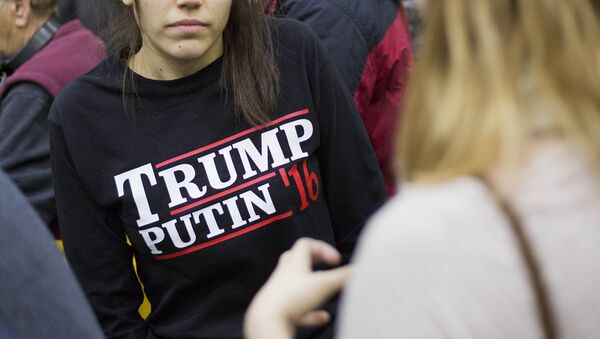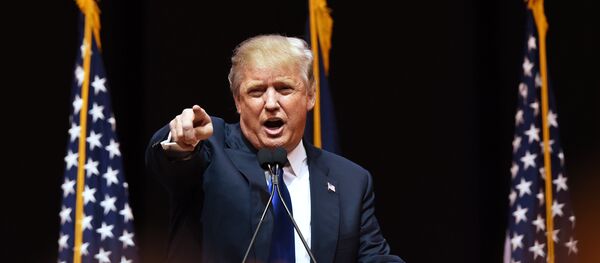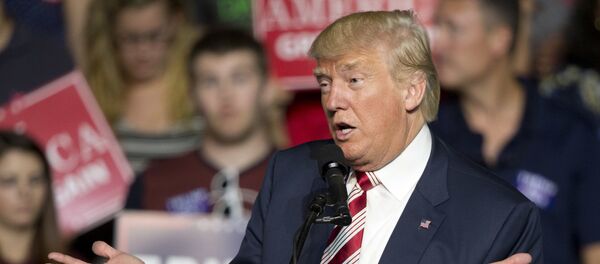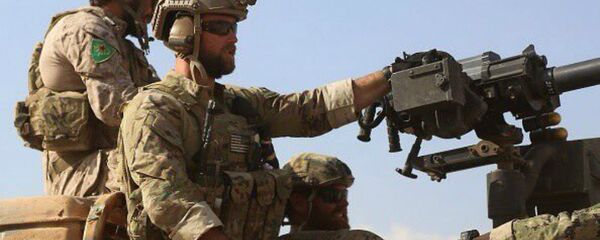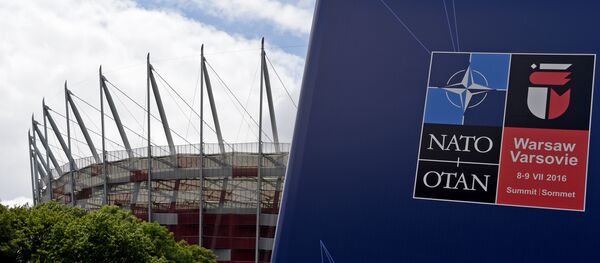WASHINGTON (Sputnik) — During his campaign, Trump has been advocating better cooperation with Russia, including on anti-terror fight and the Syrian crisis.
Easing of Anti-Russia Sanctions
Steven Lamy, Professor of International Relations in the University of Southern California (USC), told RIA Novosti that the US foreign policy under Trump's presidency would be characterized as "selective engagement," adding that Washington's relations with Moscow would barely see "initial warming," but the criticism expressed by US officials in regard to Russian President Vladimir Putin could also be reduced.
"We do not know who he will have on his foreign policy team but it is likely to be traditional realists who will be concerned about a balance of power in the region. The anti-Putin rhetoric may calm down but and I think he may ease the sanctions in areas of economic advantage for the United States," Lamy said.
Kurk Dorsey, Professor of History in the University of New Hampshire (UNH), told RIA Novosti that the relations between the two countries would enhance in the short-term because of the mutual respect between the Russian leader and the president-elect. At the same time, the expert added that possible rapprochement in the long-term would be based on the possibility of the two presidents to find common ground on a number of issues.
Jeannie Sowers, Associate Professor of Political Science in the UNH, said that Trump's statements about future improvement of relations with Moscow were made as part of his attempts to make his Democratic rival Hillary Clinton to "look bad and had nothing to do with ‘real’ US interests."
"I suspect that Trump will also find he shares less in common in international affairs with Putin than he may have indicated publicly in his campaign speeches," she said, adding that the sanctions regime could stay in place.
Syria, Struggle Against Terrorism
Lamy suggested that joint efforts of Russia and the United States in their struggle against the Daesh, which is outlawed in both countries, "could become the first step in improving relations all around."
The professor also predicts that Trump could soften Washington's stance as for Assad, whose resignation has been repeatedly demanded by Obama's administration.
"Trump may say we need to live with him and stop meddling in others domestic affairs. He will not have humanitarian hawks on his team like [US Permanent Representative to the United Nations] Samantha Power and [White House National Security Adviser] Susan Rice."
Dorsey said that Russia and the United States would not start joint actions against Daesh terrorists, but "Trump will ask US generals to look for new strategies to fight ISIS."
"He said during the campaign that Aleppo had already fallen, which I take to mean that he accepts that Assad will retain power, and that will be a major change," the professor added.
Unclear Priorities
Paul Pillar, Nonresident Senior Fellow at the Center for Security Studies at Georgetown University, suggested in a comment to RIA Novosti that it is too early to speak about the pillars on which Trump's foreign policy would be based on.
"In vast areas of foreign policy Mr. Trump has given little indication of having any well-thought-out objectives and priorities. Beyond a few themes such as being opposed to free trade and to allies not pulling their weight, the foreign policy of his administration has yet to be constructed."
His words were echoed by the statement of University of Michigan professor Michael Traugott, who said that the foreign policy of Trump's administration could not be predicted yet, while it was still not clear, who would be the new country's secretary of state.
Following the elections, media reported that the list of Trump's potential secretaries of state, included US senators Robert Corker and Jeff Sessions, former US House of Representatives Speaker Newt Gingrich, former US Ambassador to the United Nations John Bolton and President of the Council of Foreign Relations Richard Haass.
